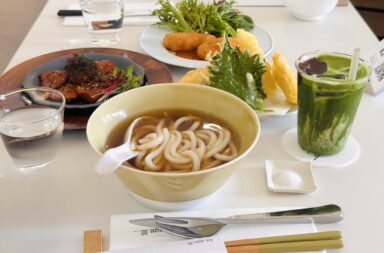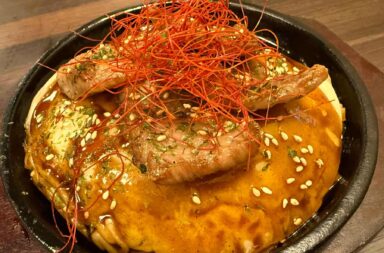This post is also available in: Indonesia
Celebrate Iftar with Authentic Japanese Delicacies
As the holy month of Ramadan approaches, Muslims around the globe prepare for a period of fasting, reflection, and community.
In Japan, a country with a minority Muslim population, finding halal food options can sometimes be a challenge, especially when it comes to enjoying traditional Japanese sweets. However, with a bit of knowledge and preparation, you can still indulge in delicious, Muslim-friendly Japanese delicacies during your iftar.
See Also
5 Essential Tips for Muslim Travelers in Japan During Spring Ramadan
Anmitsu: A Refreshing Choice
Anmitsu is a popular Japanese dessert that consists of agar-agar jelly (plant-based), fruits, mochi, and red bean paste topped with sweet brown sugar syrup. It is a refreshing choice for iftar during the warmer months of Ramadan.
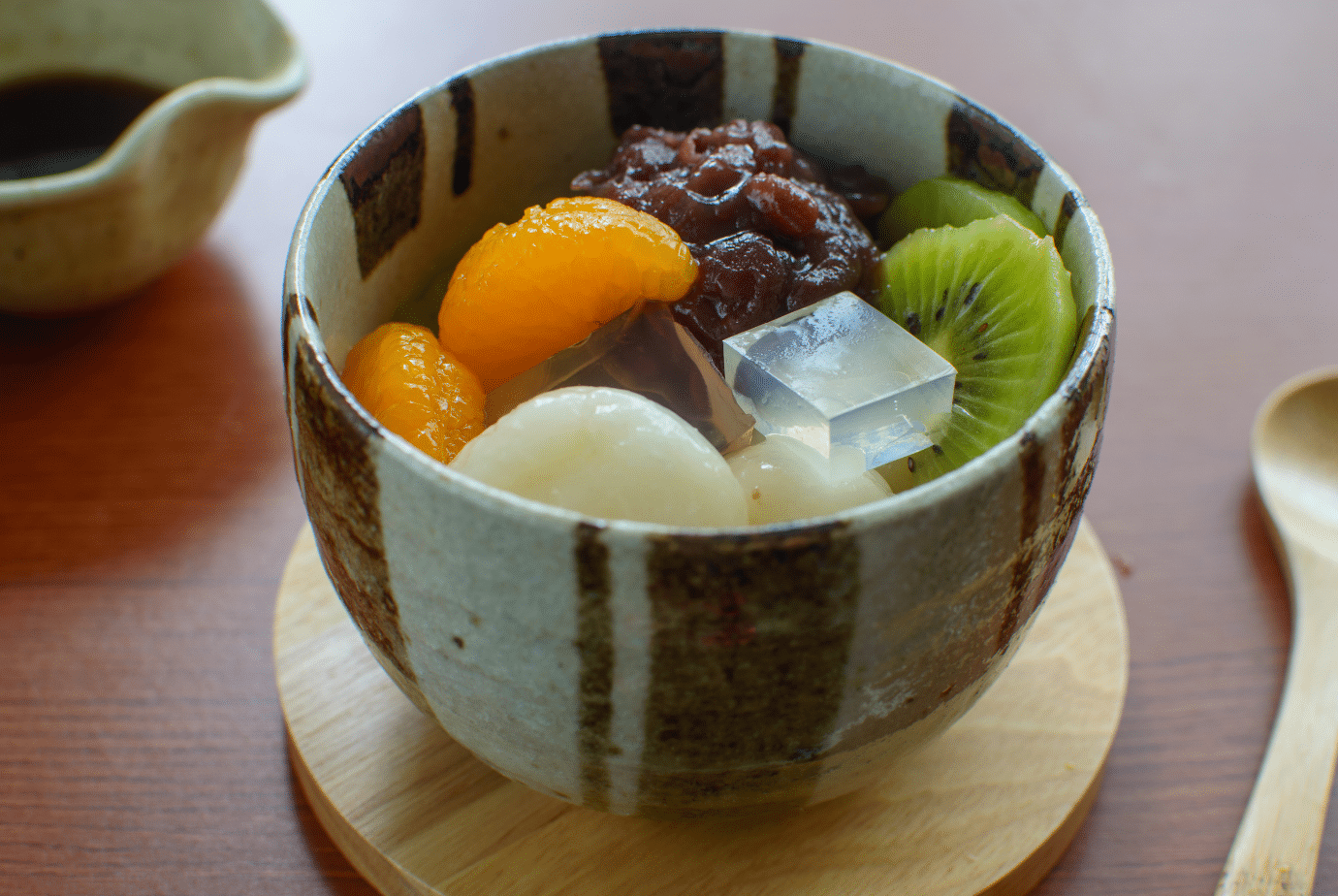
Ohagi: Sweet and Satisfying
Ohagi, or botamochi, are sweet rice balls covered with bean paste or roasted soybean flour (kinako). They are traditionally made with wholesome ingredients, making them a safe and satisfying option for Muslims.
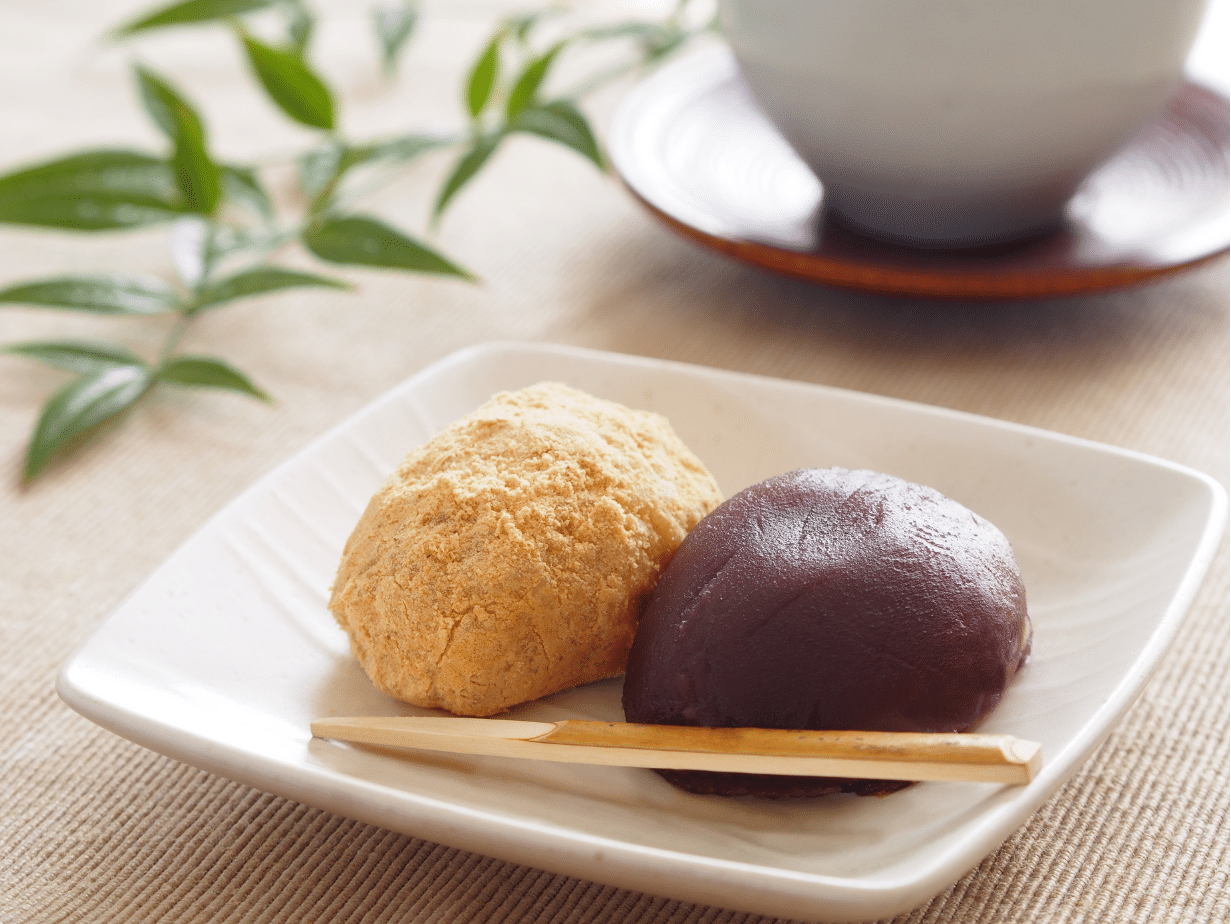
Dango: Simple and Delicious
Dango are skewered rice dumplings that come in various toppings. There is also a skewered dango that appears in 3 colors. As dango itself is made from rice flour and water, they are generally free from non-halal ingredients. Regarding the topping, you can go with red bean paste topping or zunda (edamame) topping for a worry-free experience.
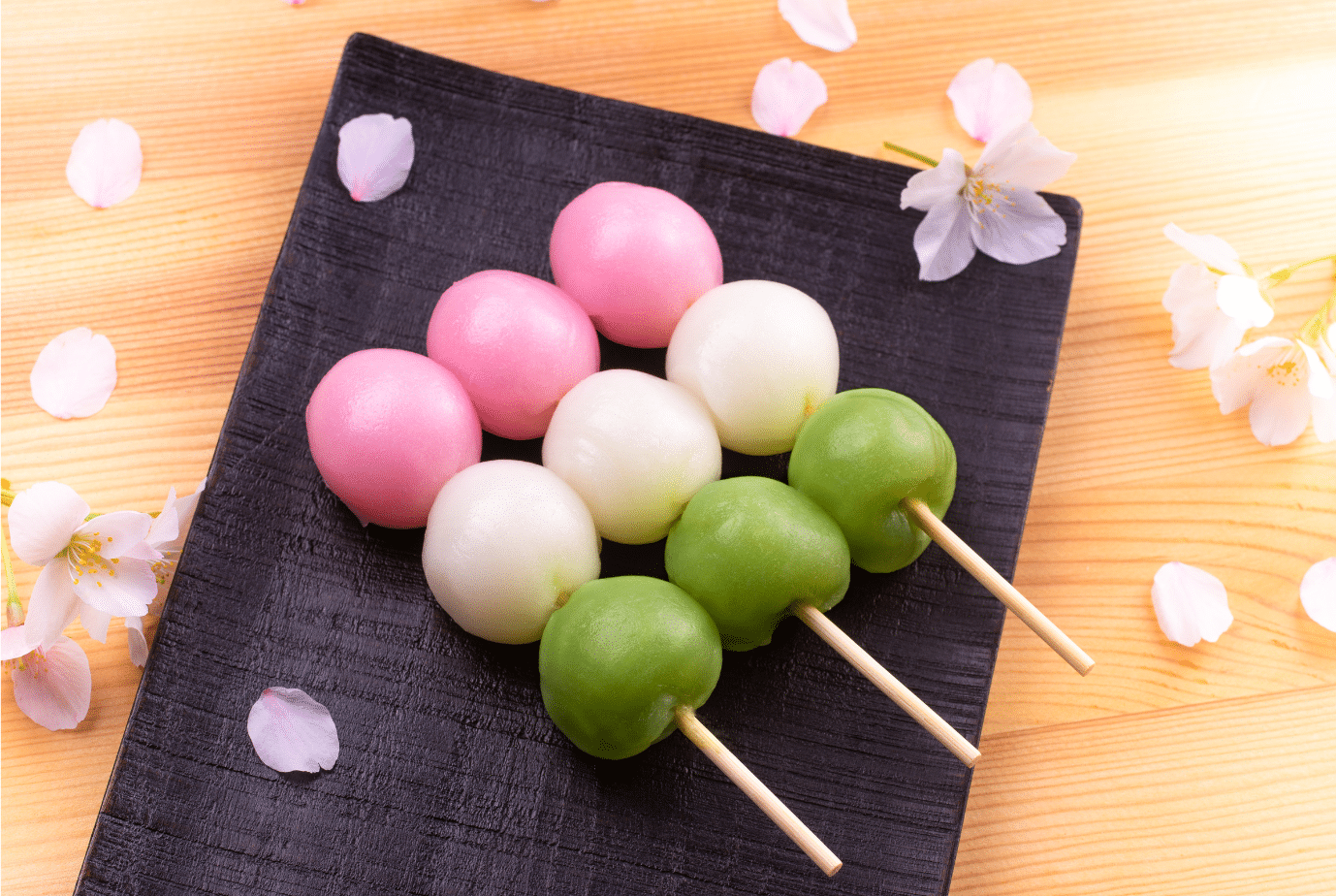
Mizu Manju: A Cool Treat
Mizu manju is a jelly-like confectionery filled with sweet red bean paste, perfect for cooling down after a day of fasting. It is made with kudzu starch (from kudzu plant/Japanese arrowroot) which gives it a unique, almost transparent appearance and plump texture. Its refreshing taste blends harmonically with sweet red bean paste that is perfect for iftar.
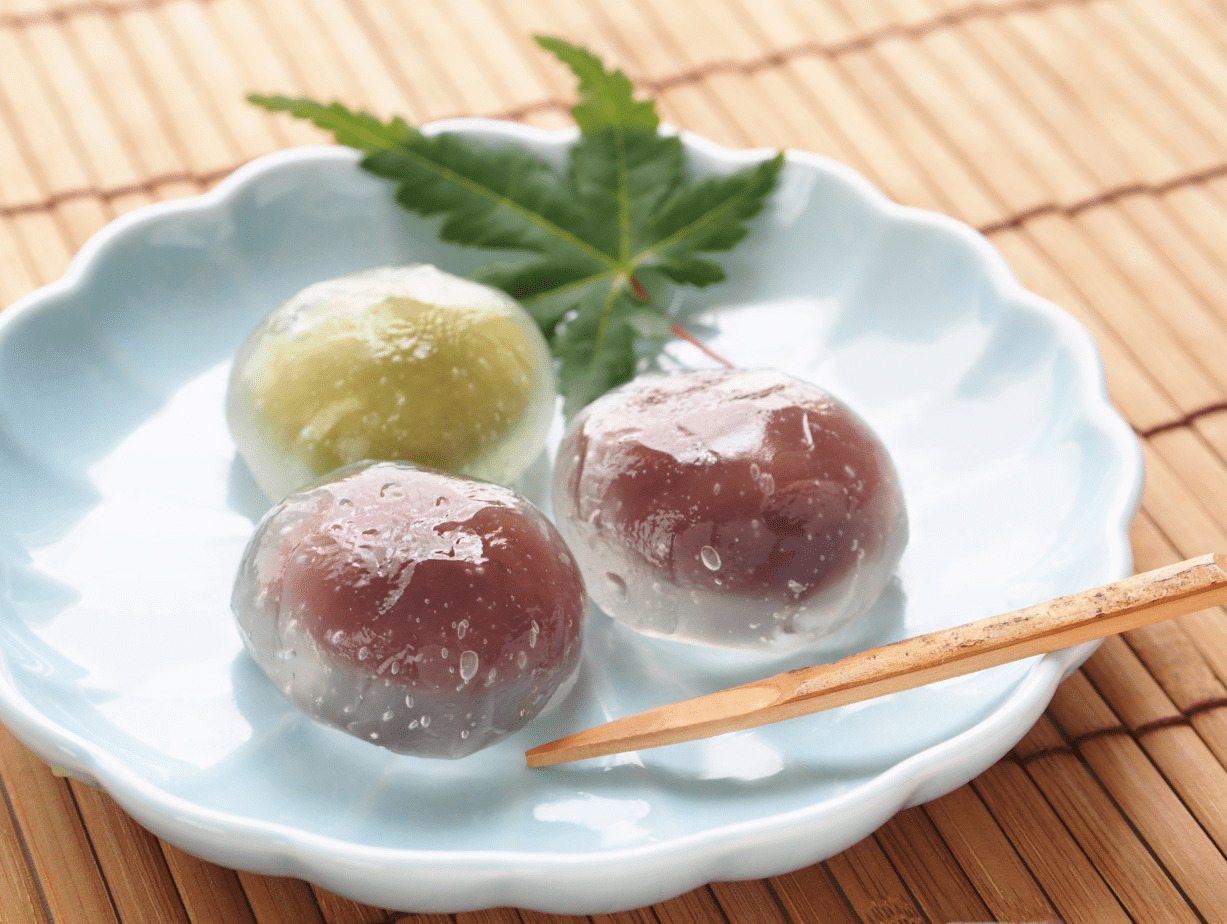
Warabimochi: A Traditional Favorite
Warabimochi is not the typical mochi from rice cake but is a jelly-like confection made from bracken starch and coated in roasted soybean flour (kinako), usually enjoyed together with brown sugar syrup. It is typically vegan and gluten-free.
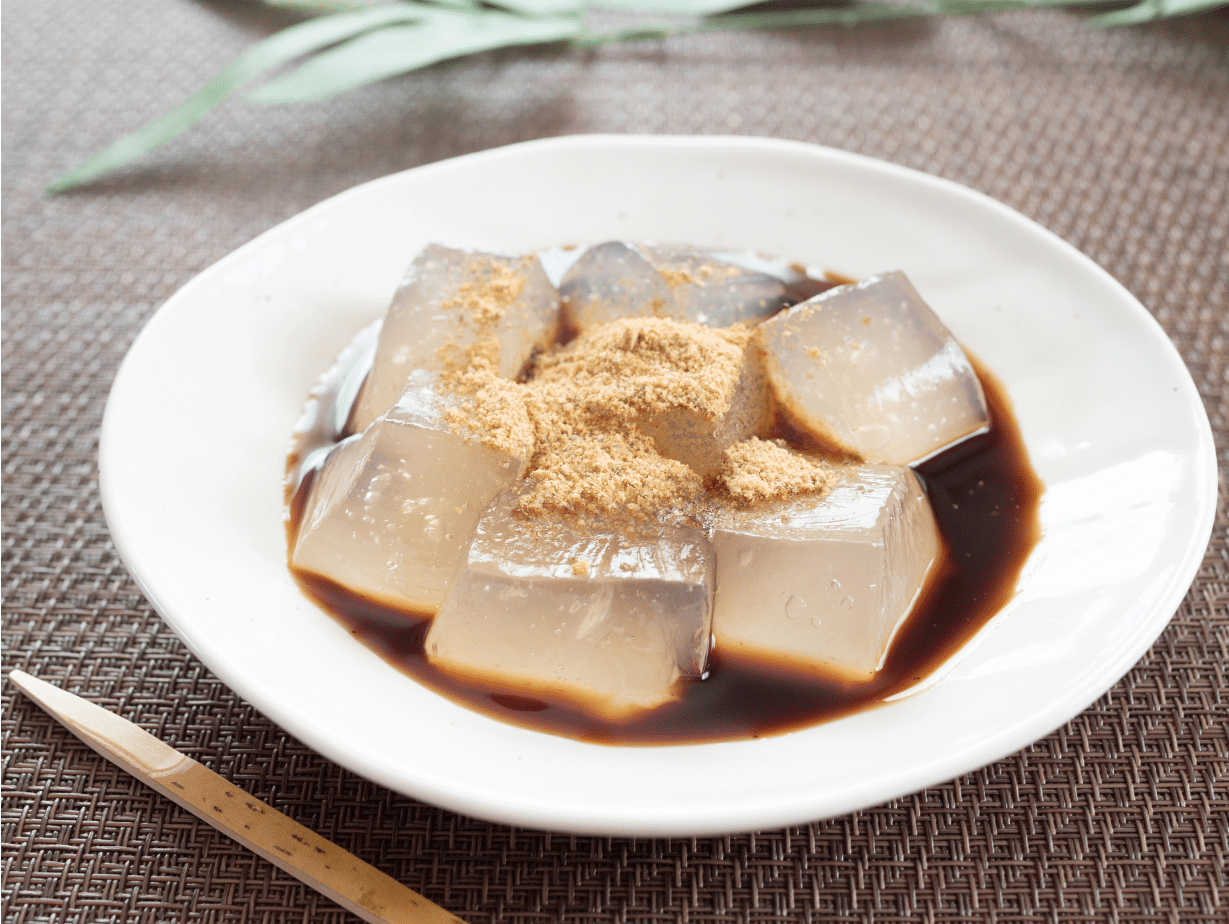
Daifuku: A Soft and Sweet Delight
Daifuku is a soft mochi stuffed with sweet fillings, most commonly anko (red bean paste), or the most famous strawberry filling. There is also halal-certified daifuku with melting cream filling available in various flavors, such as matcha and strawberry, as well as vegetarian-friendly soy daifuku.
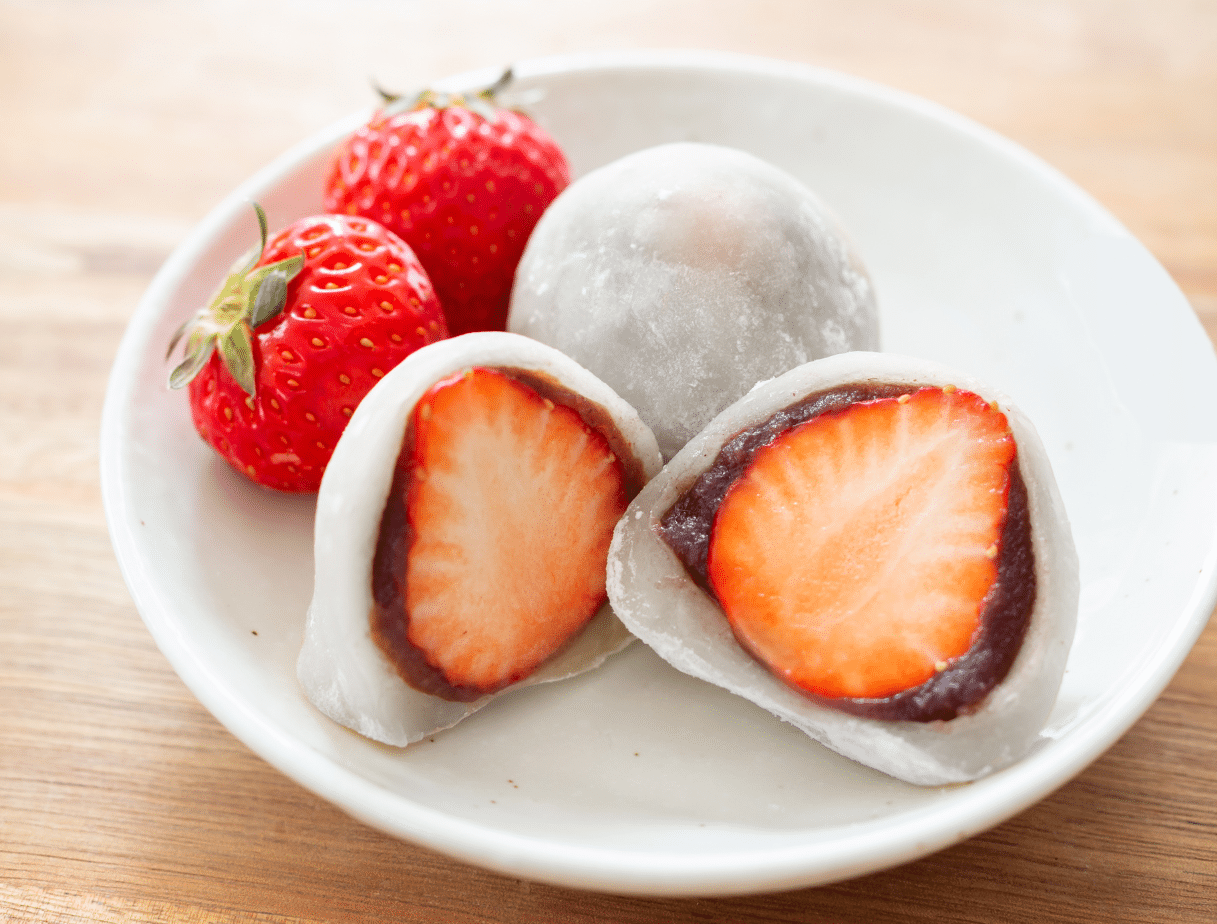
See Also
Halal Cream Daifuku and Where to Get It Across Japan
Additional Recommendations:
For those looking to explore beyond these traditional sweets, Japan offers a plethora of other Muslim-friendly options such as:
- Yatsuhashi: A cinnamon-flavored dough filled with red bean paste, available in baked or raw versions.
- Kuzumochi: A chewy treat made from kudzu starch, often served with kinako (roasted soybean flour) or brown sugar syrup.
- Amazake: this healthy drink tastes sweet with a slightly creamy texture, nice to be enjoyed both hot and cold and perfect for iftar.
See Also
Navigating Japanese Sweets as a Muslim in Japan
While Japan’s culinary scene is vast and varied, Muslims living in or visiting Japan during Ramadan can still enjoy a wide range of traditional sweets by being mindful of the ingredients.
Many Japanese sweets are naturally halal, but always inquire or check the ingredient list to be sure.
In celebrating Ramadan in Japan, these halal Japanese sweets not only allow Muslim travelers and residents to partake in the local cuisine but also add a delightful and authentic touch to their iftar meals.
Enjoy the fusion of Japanese tradition with Islamic dietary principles this Ramadan 2024.

